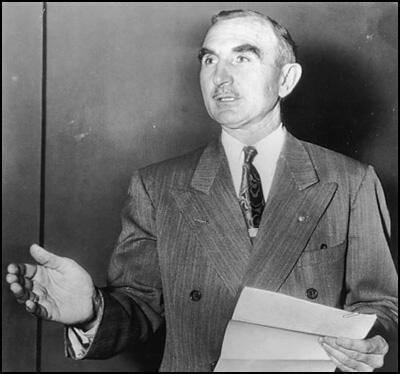Wayne Morse
Wayne Morse was born in Madison, Wisconsin, on 20th October, 1900. After graduating from the University of Wisconsin in 1923 he studied law at the University of Minnesota and Columbia University. As a young man he came under the influence of Robert La Follette, a Republican from Wisconsin.
Morse became assistant professor of law at the University of Oregon in 1929. Over the next few years he gained national recognition as an arbitrator of industrial disputes and served as a member of the National War Labor Board (1942-44).
A member of the Republican Party, Morse was elected to the Senate in 1944. On the left of the party, Morse's liberal views made him a target of Joseph McCarthy. However, Morse was extremely popular in Oregon and he was able to survive McCarthy's claims that he was a Communist sympathizer. Although an anti-Communist, Morse continued to support the civil liberties of members of the Communist Party. He also signed the Declaration of Conscience, a document that attacked the abuses of McCarthyism.
Morse was an advocate of Afro-American civil rights and fought for the desegregation of the District of Columbia and upset senators from the Deep South by inviting black leaders to meetings in the Senate.

In 1952 Morse refused to support the Republican presidential nominee, Dwight Eisenhower and and sat in the Senate as an independent. He also attacked the vice president, Richard Nixon, and the smear tactics he used against his opponents. He eventually joined the Democratic Party and won his seat in the Senate in 1956.
A strong opponent of the Vietnam War, Morse was one of only two senators to vote against the Gulf of Tonkin resolution in 1964. Morse was defeated for re-election in 1968. Wayne Morse died in Portland, Oregon, on 22nd July, 1974.

